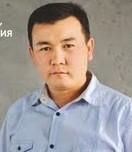The Central Asia-Azerbaijan Fellowship Program (CAAFP) is intended for young professionals – scholars, government officials, public policy experts, and social activists – who seek to enhance their research and analytical skills and become public policy leaders. The fellowship is available to individuals from Kyrgyzstan, Tajikistan, Uzbekistan, Turkmenistan, Kazakhstan, and Azerbaijan. The fellowship program provides a platform for the exchange of ideas and build lasting intellectual networks among the Central Asian and Azerbaijani and U.S. scholarly and policy communities.
Fall 2021 CAAFP Fellows

Niginakhon Uralova is an assistant professor at Webster University in Tashkent, Uzbekistan. She studies Central Asian politics with a focus on Uzbekistan and is interested in modern Islamic political thought as well as the question of political legitimacy. Her research at CAP will examine why public-school teachers in Uzbekistan are leaving their jobs for the private sector or for labor migration.

Javeed Ahwar is a third-year Ph.D. student of Eurasian Studies at Nazarbayev University, Kazakhstan. He is currently conducting part of his research at Humboldt University in Berlin, Germany, with the help of the Erasmus+ Scholarship. His research at CAP will investigate the role of language ideology in the formation of the modern nations of Uzbekistan, Tajikistan, and Afghanistan from 1800 to the 1950s. His research interests include linguistic nationalism, state-building, modernization, and modern literature.

Albina Yun works as a program manager at the 139 Documentary Center, a cultural platform for artists, activists, and researchers in Tashkent, Uzbekistan. She holds an MA in Critical Gender Studies from the Central European University and an MA in Politics and Security from the OSCE Academy. Her research at CAP will explore the concept of mahalla and how it can be employed in grassroots activism; facilitate the new paradigm of destigmatization; and reclaim everyday history, legacy and urban landscapes in Tashkent. Her areas of interest include migratory processes, ethnocentrism, post-colonial and post-Soviet theories, biopolitics, affect theory, and gender studies.

Tansaya Khajikhan holds an MA in economic governance and development from the OSCE Academy in Bishkek. She works as a data analyst at Barloworld Mongolia and as a part-time researcher at the National Statistics Office of Mongolia. Her research at CAP will investigate gender differences in households’ expenditure on higher education in Mongolia. Her research interests include gender-related issues, socio-economic development, and social inequality.

Aizhan Erisheva holds an MA in Economic Governance and Development from the OSCE Academy and a BA in World Economy from Alatoo International University, Kyrgyzstan. Over the last few years, she has implemented various development projects designed to increase civic engagement, reduce poverty, enhance employability, and protect the socio-economic rights of vulnerable groups. Her research interests include socio-economic development, migration and employability issues, gender, and social discontent. While at CAP, she will focus on male engagement and gender issues in Kyrgyzstan.

Kasiet Ysmanova is a Communications Manager and Researcher at Central Asia Barometer. She holds an MA in Politics and Security from the OSCE Academy and a BA in International Relations from Manas University, Kyrgyzstan. She also studied at Hacettepe University in Turkey as an exchange student and worked at the Kyrgyz Embassy in Ankara for a year. In addition, she has worked at Jogorku Kenesh, the Ministry of Education and Science of the Kyrgyz Republic, and the Vienna office of the OSCE Parliamentary Assembly. At CAB, she and her colleagues are currently in the fieldwork stage of the project “United Central Asia: Obstacles, Opportunities, Prospects,” conducted in partnership with the Rosa-Luxemburg-Stiftung Central Asia. They will conduct public opinion surveys, focus groups, and in-depth interviews in 4 Central Asian countries with the goal of learning about the prospects of Central Asian integration. Her paper for CAP will attempt to provide analysis and policy suggestions for different interest groups based on the data collected.

Waris Ahmad Faizi is from Afghanistan. He holds an MA in economic governance and development from the OSCE Academy (2020) and an MBA from the partnership between Ball State University (US) and Kabul University (2017). He also holds a one-year diploma in leadership development from Morning Star Development, an American NGO. He is currently working at Capital Region Development Authority, one of Afghanistan’s public development organizations, as a Senior Economic Development Specialist. He also works as an Economic Consultant—Research Specialist at Pearl Horizon Consultancy, focusing on World Bank Group research and development projects in Afghanistan. His research at CAP will explore the impact of the Belt & Road Initiative on Afghanistan’s political economy. His research interests include economic development, international development, political economy, poverty, and globalization.
 Andrei Shvarev, A native of St. Petersburg, Russia, Andrei Shvarev has studied at the Higher School of Economics, University College London, Peking University, and the OSCE. It was at the OSCE that he discovered a passion for politics, state-building, and public policy. He has expanded upon these interests by leading a project at the Red Cross, chairing international conferences, and working as a civil servant for one of the ministries in his home country. As a Fellow at CAP, Andrei will explore how Chinese foreign direct investments within the framework of the Belt and Road Initiative have been affecting the rule of law and transformation processes in Central Asia. He hopes that his time at CAP will allow him to deepen his understanding of the intersection of investment, state-building, and judicial performance in the region. Outside of academics, Andrei enjoys skiing, traveling, art, and foreign languages.
Andrei Shvarev, A native of St. Petersburg, Russia, Andrei Shvarev has studied at the Higher School of Economics, University College London, Peking University, and the OSCE. It was at the OSCE that he discovered a passion for politics, state-building, and public policy. He has expanded upon these interests by leading a project at the Red Cross, chairing international conferences, and working as a civil servant for one of the ministries in his home country. As a Fellow at CAP, Andrei will explore how Chinese foreign direct investments within the framework of the Belt and Road Initiative have been affecting the rule of law and transformation processes in Central Asia. He hopes that his time at CAP will allow him to deepen his understanding of the intersection of investment, state-building, and judicial performance in the region. Outside of academics, Andrei enjoys skiing, traveling, art, and foreign languages.
Previous CAAFP Fellows and Their Publications
Spring 2021
Fall 2019
 Ilhom Aliyev
Ilhom Aliyev
 Nafissa Insebayeva
Nafissa Insebayeva
Choosing Your Battles: Different Languages of Kazakhstani Youth Activism
 Aichurek Kurmanbekova
Aichurek Kurmanbekova
 Lola Ulugova (Lolisanam)
Lola Ulugova (Lolisanam)
Tajik Artists Lead Social Change: The Role of Art in Questioning Tajik Traditional Values
Spring 2019
Fall 2018
 Daniyar Kosnazarov
Daniyar Kosnazarov
Do-It-Yourself Activism: Youth, Social Media and Politics in Kazakhstan
 Gulzhigit Ermatov
Gulzhigit Ermatov
Understanding Illiberal Sentiments of Kyrgyz Youth
 Arzu Geybullayeva
Arzu Geybullayeva
Azerbaijan’s Suspended Democracy: Time For An International Reassessment
 Dursunjemal Halimova
Dursunjemal Halimova
Economic Smart Power: Utilizing The Untapped Asset Of Turkmen Youth
 Sabina Insebayeva
Sabina Insebayeva
Imagining the Nation: Identity, Nation Building and Foreign Policy in Kazakhstan
 Kassymkhan Kapparov
Kassymkhan Kapparov
Invisible Public Debt: The Case of Kazakhstan
Propiska as a Tool of Discrimination in Central Asia
Presentation, January 12, 2016
Causes and Consequences of the Dysfunctionalities of the Housing Market in Dushanbe
Presentation, January 12, 2016
Dilorom Boqikhodjaeva
The Marginalization of Rural Women Entrepreneurs in Tajikistan
Presentation, January 12, 2016
Religious Extremism in Kazakhstan: From Criminal Networks to Jihad



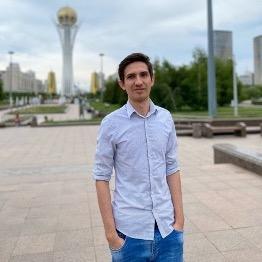

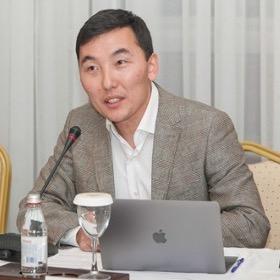

 Elmurat Ashiraliev
Elmurat Ashiraliev Nazimaxon Davletova
Nazimaxon Davletova Aigerim Kopeyeva
Aigerim Kopeyeva Sergey Marinin
Sergey Marinin


 Dinara Alimkhanova
Dinara Alimkhanova 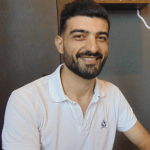 Elchin Karimov
Elchin Karimov Dilmira Matyakubova
Dilmira Matyakubova Raushanna Sarkeyeva
Raushanna Sarkeyeva Anna Gussarova
Anna Gussarova Karlygash Kabatova
Karlygash Kabatova  Diana Mamatova
Diana Mamatova Jafar Usmanov
Jafar Usmanov Jeyhun Valiyev
Jeyhun Valiyev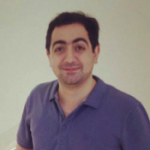 Kamal Gasimov
Kamal Gasimov  Nazik Imanbekova
Nazik Imanbekova  Daniyar Kussainov
Daniyar Kussainov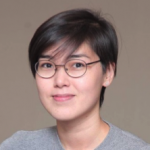 Dinara Nurusheva
Dinara Nurusheva Rafael Sattarov
Rafael Sattarov  Alexandra Tsay
Alexandra Tsay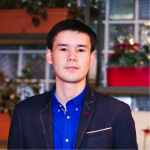 Berikbol Dukeyev
Berikbol Dukeyev  Savia Hasanova
Savia Hasanova 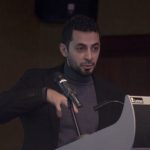 Murad Ismayilov
Murad Ismayilov Serik Jaxylykov
Serik Jaxylykov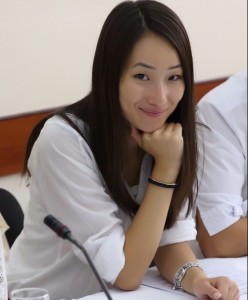

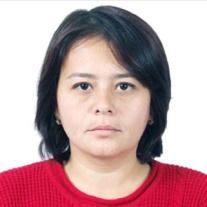
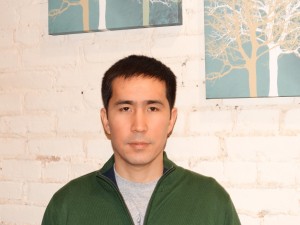

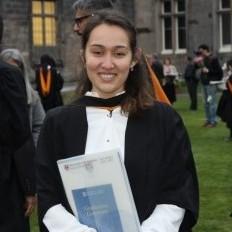 Nazik Muradova
Nazik Muradova


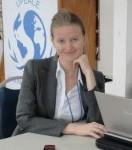 Nariya Khasanova
Nariya Khasanova
